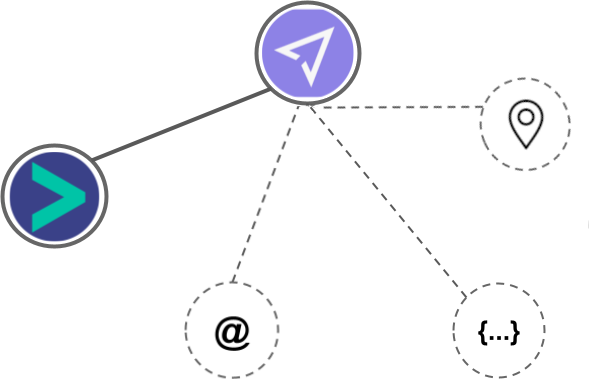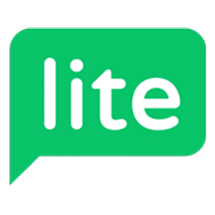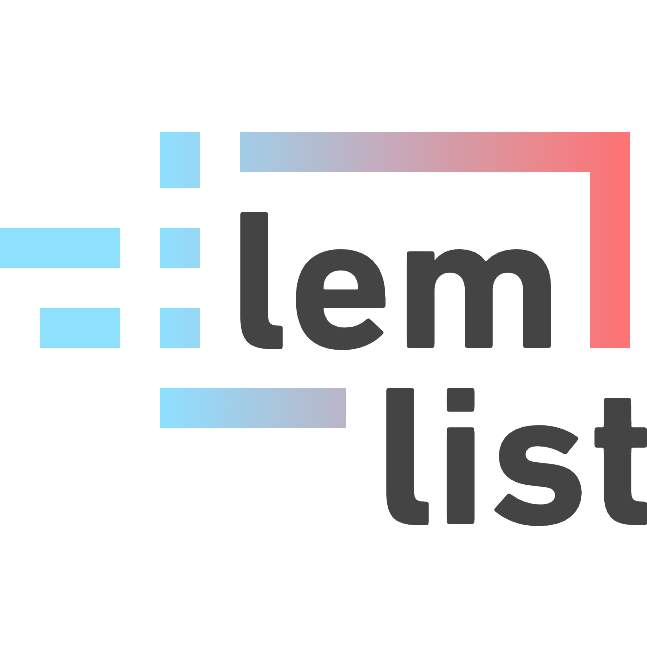Salesforce vs Mailjet
Hyperise integrates with 100's of sales and marketing tools, many of which are in the CRM category. With so many to choose from it's sometimes hard to know which is best, but don't worry, we've got your covered.
In this comparison guide we're going to look at the Highlights, Pros, Cons and Pricing of Salesforce and Mailjet. We'll also delve into the details of which offers the best personalization options within CRM, with there respective Hyperise integrations
Salesforce
Pricing: Salesforce offers different pricing plans for its products and services. Here is a brief summary of Salesforce pricing: 1. Sales Cloud: Sales Cloud starts at $25 per user per month, and it offers three pricing plans: Essentials, Professional, and Enterprise. 2. Service Cloud: Service Cloud starts at $25 per user per month, and it offers three pricing plans: Essentials, Professional, and Enterprise. 3.
Vs

Mailjet
Pricing: Mailjet offers several pricing tiers based on the number of emails sent per month and the features included in each plan. Here's a brief summary of their pricing: - Free: Send up to 6,000 emails per month. Includes core email features and basic email support. - Basic: Starts at $9.65/month for up to 30,000 emails per month. Includes advanced email features such as segmentation, A/B testing, and premium support. - Premium: Starts at $20.
Salesforce vs Mailjet Highlights
Salesforce and Mailjet are two different software platforms designed for different purposes. Salesforce is mainly a Customer Relation Management (CRM) software that helps businesses manage their sales, marketing, and customer service operations. It provides a wide range of features to help sales teams manage sales pipelines, track deals, and automate sales processes. On the other hand, Mailjet is an email service provider that specializes in delivering marketing and transactional emails for businesses.
One of the main differences between Salesforce and Mailjet is the scope of their functionalities. Salesforce offers a more extensive range of capabilities, including lead and opportunity management, contact and account management, marketing automation, and reporting and analytics. On the other hand, Mailjet primarily focuses on email marketing, with features like bulk email sending, email template creation, and email campaign analysis.
Another key difference is the target market. Salesforce is mostly designed for medium to large enterprises, while Mailjet primarily caters to small and medium-sized businesses. This is reflected in the pricing models of the two platforms.
Overall, Salesforce and Mailjet are two distinct software platforms designed for different purposes. While Salesforce offers a comprehensive set of features for managing sales processes, Mailjet specializes in email marketing. Businesses should evaluate their needs and choose the platform that suits their requirements best.
Salesforce vs Mailjet Pros
Salesforce Pros
- Pros of Salesforce compared to Mailjet:
- Salesforce is a comprehensive CRM (Customer Relationship Management) platform, while Mailjet is primarily email marketing software.
- Salesforce offers advanced sales and marketing automation tools, such as lead scoring, lead nurturing, and personalized customer journeys, that are not available in Mailjet.
- Salesforce supports multiple communication channels, including social media, web forms, live chat, and mobile apps, in addition to email, while Mailjet focuses only on email.
- Salesforce provides a wide range of integrations with other business systems, such as ERP, accounting, and e-commerce, to streamline data sharing and improve operational efficiency.
- Salesforce offers robust analytics and reporting features that enable businesses to monitor their sales and marketing performance, track KPIs, and generate customized reports, which are more advanced than those offered by Mailjet.
- Salesforce provides enterprise-level security and compliance features, such as data encryption, user authentication, and role-based access controls, to ensure data privacy and regulatory compliance, which may be lacking in Mailjet.
Mailjet Pros
- Mailjet is typically more affordable than Salesforce, making it a good option for small to medium-sized businesses with a tighter budget.
- Mailjet is specifically designed for email marketing, so it may have more robust features specifically catered to email campaigns compared to Salesforce's more general customer relationship management system.
- Mailjet offers a free plan for users who have less than 6,000 emails per month.
- Mailjet has a user-friendly interface that is easy to navigate, which can save time and minimize confusion for marketers and email campaign managers.
- Mailjet provides extensive analytics to measure the success of your email campaigns, allowing you to make data-driven decisions for future campaigns.
- Mailjet allows for easy integration with other digital marketing tools, such as Facebook, Google Analytics, and WordPress.
Salesforce vs Mailjet Cons
Salesforce Cons
- Cons of Salesforce compared to Mailjet:
- Salesforce can be quite expensive, with subscriptions starting at $25 per month per user, whereas Mailjet offers more affordable pricing models.
- Salesforce is primarily designed for customer relationship management (CRM) and may not be as effective when it comes to email marketing, which is Mailjet's primary focus.
- The interface of Salesforce can be overwhelming for new users, as it offers a wide range of features and customization options.
- Salesforce requires a longer learning curve, due to its complexity compared to Mailjet, which is easier to use.
- Marketing automation, which is essential for efficient email marketing, can be a challenge with Salesforce, whereas Mailjet specializes in this area.
Mailjet Cons
- Limited integration options with third-party applications and tools compared to Salesforce.
- Limited CRM capabilities and features in Mailjet compared to Salesforce.
- Higher pricing for larger email volumes compared to Salesforce.
- Limited customer support options compared to Salesforce.
- Limited automation and personalization options compared to Salesforce.
Salesforce & Mailjet Hyperise Integrations
Salesforce uses the HTML code embed method to integrate with Hyperise, giving a simple way to add personalized images to your messages.
Salesforce makes the following data points available to Hyperise, to enable personalization in images used in outreach and linked out to your personalized website landing pages.
- Using business Email passed from Salesforce, Hyperise is able to enrich business logo and website screenshots. In some cases, with a business Email we're also able to enrich profile images, subject to the business email having a publicly available profile.
- Using business Website passed from Salesforce, Hyperise is able to enrich business logo and website screenshots.
- Business name
- City
- State
- Country
- Zip
- Category
Salesforce Integration Guide
Mailjet uses the Image embed method to integrate with Hyperise, giving a simple way to add personalized images to your messages.
Mailjet makes the following data points available to Hyperise, to enable personalization in images used in outreach and linked out to your personalized website landing pages.

- Using business Email passed from Mailjet, Hyperise is able to enrich business logo and website screenshots. In some cases, with a business Email we're also able to enrich profile images, subject to the business email having a publicly available profile.
- Country
Mailjet Integration Guide
 vs
vs  vs
vs  vs
vs  vs
vs 


 vs
vs  vs
vs  vs
vs  vs
vs  vs
vs 


 vs
vs  vs
vs 
 vs
vs 

 vs
vs 
 vs
vs  vs
vs  vs
vs  vs
vs 





 vs
vs  vs
vs  vs
vs 




